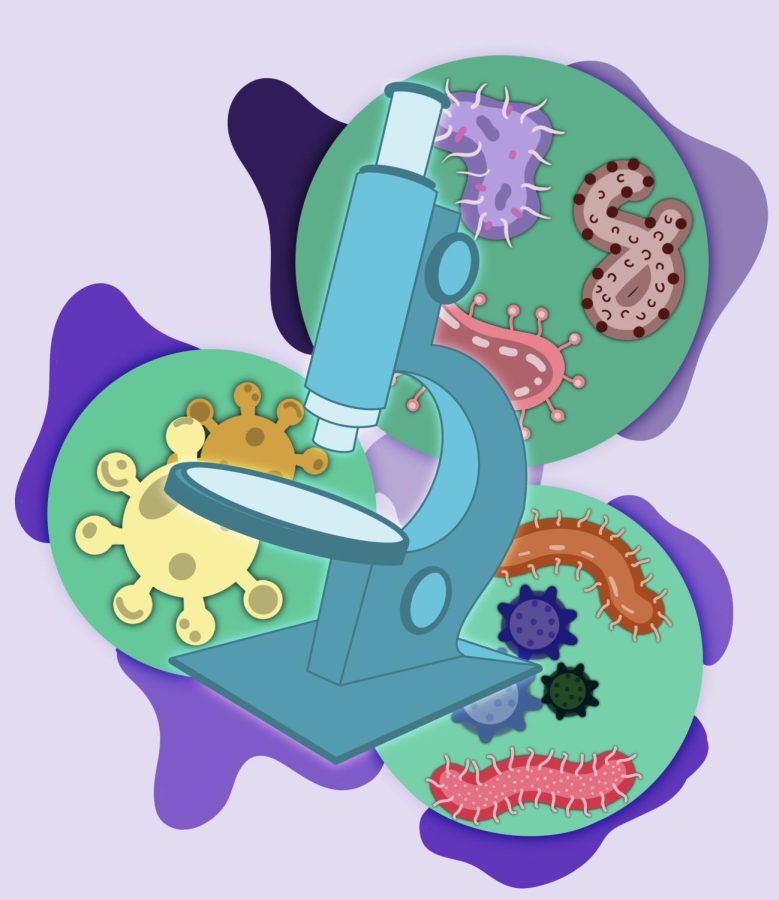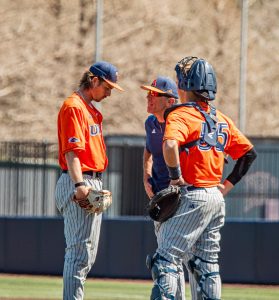UTSA to launch new Ph.D. program in molecular microbiology and immunology
April 26, 2022
UTSA’s Department of Molecular Microbiology and Immunology (MMI) will launch a new Ph.D. program in molecular microbiology and immunology beginning this fall.
Janakiram Seshu, professor of bacterial pathogenesis in the Molecular Microbiology and Immunology department, explained that the program will allow students to train in working with cutting-edge technology in the field.
“The Ph.D. program in molecular microbiology and immunology is … a very well streamlined program that would allow students to learn a lot of these cutting-edge technologies that are needed in the field of microbiology and immunology,” Seshu said. “The main impact is to prepare our doctoral-level scientists to tackle the next level of issues that we’re gonna face in the field of infectious diseases.”
Seshu further explained that the program is training students to become professionals in the field of microbiology and immunology.
“So, the main reason for why we are having this program is there is a huge demand for Ph.D. level scientists in microbiology and immunology given the fact that we [are] in the middle of a pandemic and we need the level of expertise that is needed to tackle these kinds of existing and emerging problems that we have in San Antonio, Texas, the U.S. and across the globe in terms of infectious diseases,” Seshu said.
“… hopefully we will be prepared for any potential pandemic that might come along. And again, we just cannot train our students in a short period of time; we need to have a pool of trained workforce who can tackle a problem that’s coming in, rather than not having a trained workforce that may not be able to help in the situation. So that’s why this Ph.D. program is very timely in the sense that we have a huge demand for it,” Seshu added.
Students who join the program will be able to participate in the research labs that are already present at the university, something that Seshu highlighted as an advantage.
“And the most important thing about the Molecular Microbiology and Immunology [Ph.D.] program is it is based on the research laboratories that are already available at the College of Science,” Seshu said. “Even though this is a program, we’re not going to be having, you know, additional labs needed to expand the program.”
Seshu explained that faculty at the university engaged in research are already bringing in a lot of funding, which will benefit the Ph.D. program.
“The faculty members in … molecular microbiology and immunology are also very highly funded,” Seshu said. “And so, the program is actually built on the support and the research funding that many of these faculty members have, to support the training of the students in their individual labs.”
Seshu further explained the importance of trained scientists in the context of San Antonio as well as Texas.
“San Antonio is also a hub for several biotechnology industries that need these kinds of trained scientists to push product development and development of therapeutics. We also have a very significant Department of Defense presence in San Antonio and they need a lot of these Ph.D. level scientists to tackle the issues that they face,” Seshu said. “There is a huge push at the state level to make sure that the state of Texas is economically viable and that requires [us] having Ph.D. scientists who can apply all of these innovative technologies to [develop] new products and therapeutics and treatment options.”
According to Seshu, research focusing on molecular microbiology and immunology is very important from a public health standpoint, given the prevalence of infectious disease and secondary infections.
“Infectious diseases are one of the biggest killers of people around the globe. Yes, we have a much better … we have a fantastic health care system in the U.S., however, if you look at the major diseases that kill people in large numbers, it’s again a combination of multiple infectious diseases. There are a lot of people who die of influenza every year … we also have a lot of people dying of bacterial infections for which we don’t have good antibiotics,” Seshu said.
“So, all of these areas are [in] critical need for trained scientists who will tackle these problems using the top-level cutting edge tools that we have now,” Seshu added.
“This is a wonderful program in the sense that you can get into a lab and you can learn a lot of different things … the nice thing is that whatever you do … you’re going to be doing a lot of good for a large number of people, you know,” Seshu concluded. “So obviously, if the students come in and as part of their Ph.D. thesis or eventually after they are done with getting their doctoral degree, they can develop a product that [could] save millions of lives. And so, that’s a wonderful thing to think about.”









